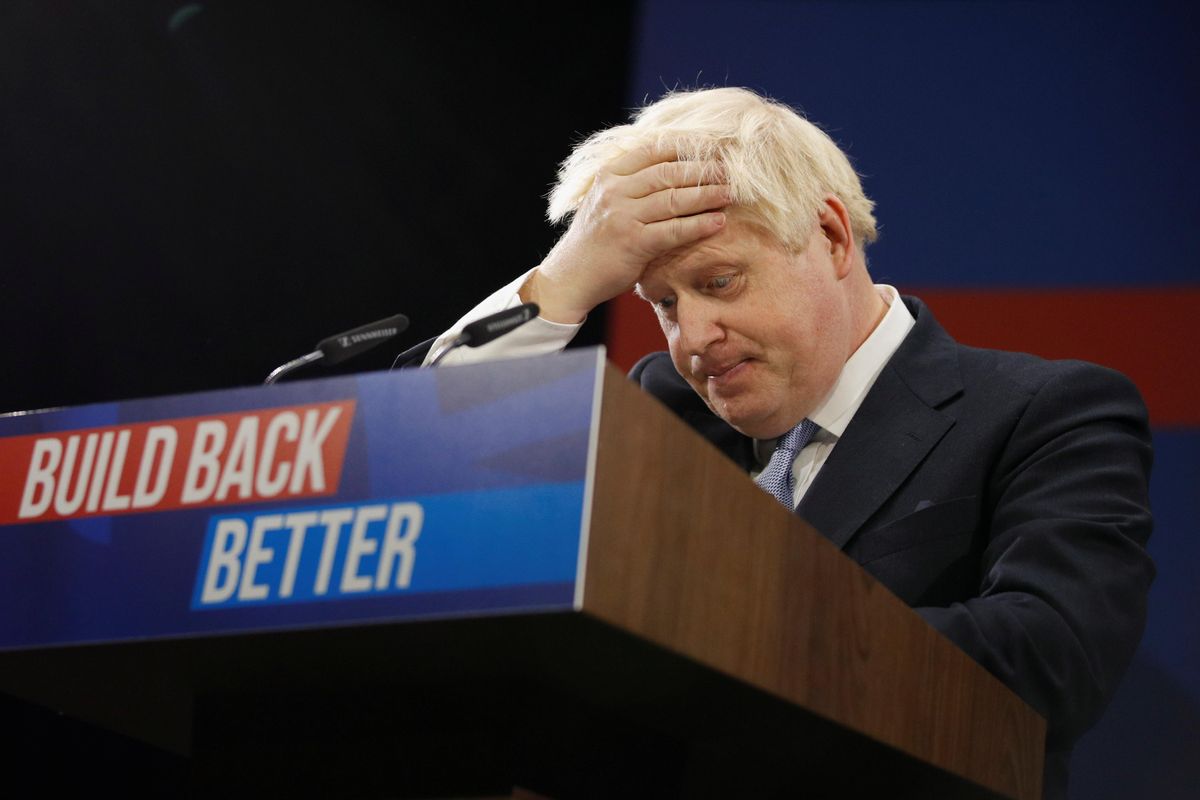When the UK left the EU at the end of last year, Prime Minister Boris Johnson promised that his country would put its new freedom to good use. A more open and dynamic "Global Britain" would still benefit from solid ties with Europe, he pledged, but aligning its foreign and trade policies more closely with democracies in other regions – the United States, India, South Korea, Australia and others — would lift the UK into a new era of security and prosperity.
But critics warned that Brexit, the most dramatic and abrupt large-scale commercial realignment in modern history, would inflict both short-term and lasting damage to Britain's economy. For decades, most of Britain's exports have gone to Europe. People and money moved freely between the UK and EU too. London's importance for Europe made it a global financial capital. You can't give all that up, the critics cautioned, and expect Britain's ship to sail smoothly on.
There was also the question of boundaries. How to draw a new line between the Republic of Ireland, an EU member state, and Northern Ireland, still part of the UK, without disrupting the hard-won peace that ended an era of Irish violence in 1998? Though Johnson got Brexit done, that problem remains unresolved.
Turn on the news now in Britain, and it appears the critics were right, at least about the short-term pain. A shortage of truck drivers, about 20,000 of them foreigners forced home by COVID and then kept out by post-Brexit visa restrictions, have created product shortages at British supermarkets and petrol stations. Prices have reached their highest point in nearly a decade and are predicted to climb higher.
There are also fears of longer-term pain as many UK industries, like its automakers, face higher costs, more paperwork, and longer wait times for parts they've long imported from Europe. The UK services sector — finance professionals, doctors, lawyers, architects etc. — which accounts for about 80 percent of economic output and jobs, is now newly subject to rules created by European regulators that increase costs and delays.
There are also new fights between the UK and EU over the Irish border question and threats flying between London and Paris over fishing rights and lingering controversies over the long-term status of EU citizens still living in the UK.
Some of the economic damage can surely be blamed on COVID, which killed more people in the UK than in any European country and forced extended lockdowns. But the lack of gasoline and other shortages in Northern Ireland, which still has an open border to the Republic of Ireland, an EU member, suggests Brexit, not COVID, is mainly to blame.
Boris Johnson says he's "not worried" about shortages and rising prices. The PM said this week that "Brexit freedoms" will boost Britain in coming years even if the UK is now struggling through an unfortunate but entirely natural period of economic adjustment. He insists the current problems will prove short-lived, and late last month his government announced an offer of three-month visas for foreign truck drivers to help Britons cope with the Christmas season.
But in the end, the truth about Brexit and its effects may not matter, because the perception that Brexit is sinking Britain's economy and prospects – and that Johnson doesn't understand or doesn't care about the impact – will boost the voices of those in Scotland who want to leave the UK and those in Ireland dreaming of Irish reunification. Latest polls suggest that support for independence in Scotland (48.3 percent) is now higher than during the 2014 independence referendum, when Scotland voted 55-45 percent to remain in the UK. The Irish border question created by Brexit has already triggered violence in Northern Ireland.
The bottom line: Brexit won't break Britain's economy – despite the shortages and anxiety it's now provoking. Producers will adjust to post-Brexit realities, and recovery from COVID will create momentum for new growth. But it might yet break up the UK politically if the current economic disruption and public anger across the country continues long enough for Scottish and Irish secessionists to build momentum for exit plans of their own.






